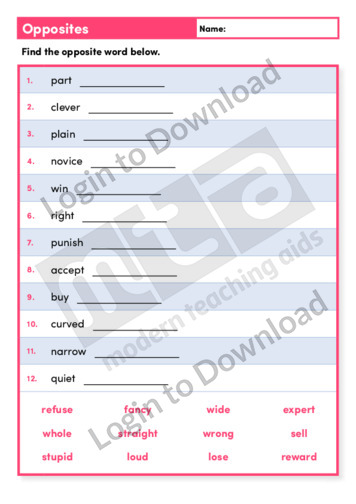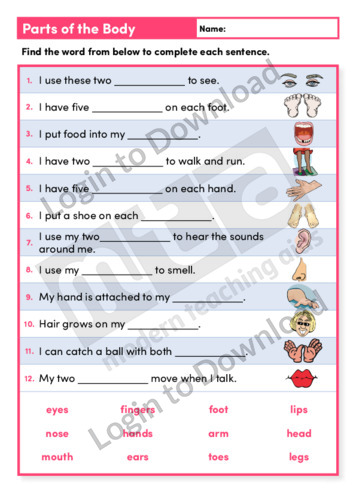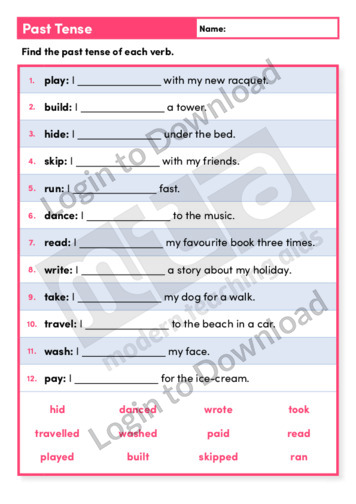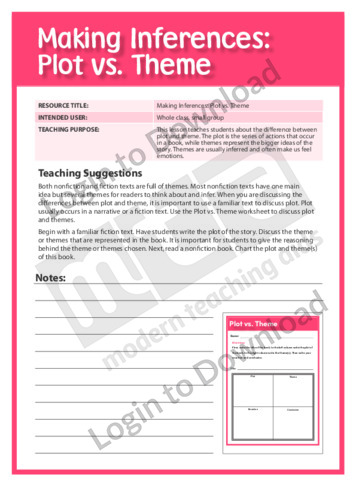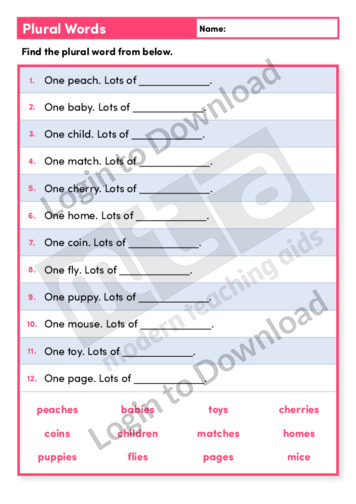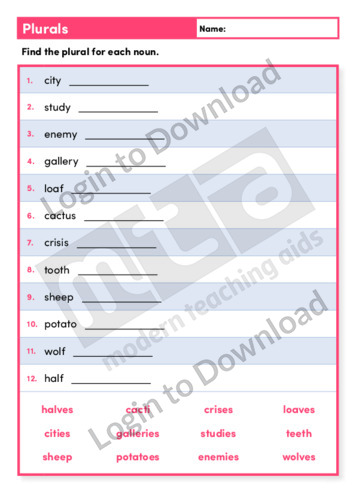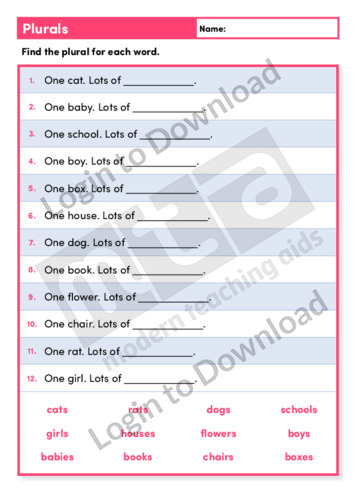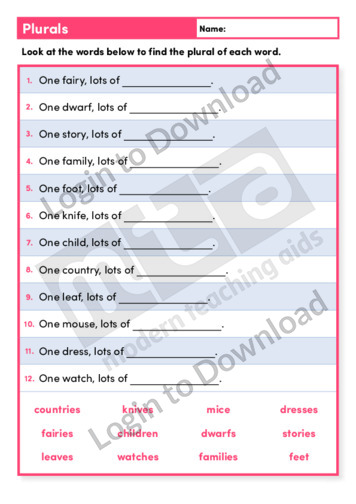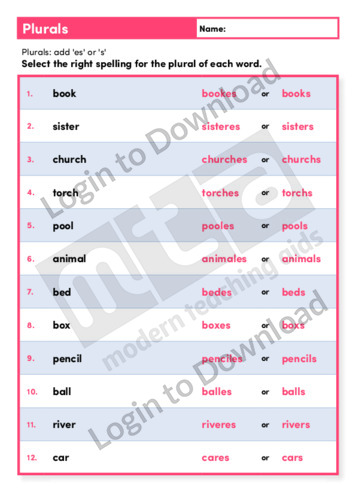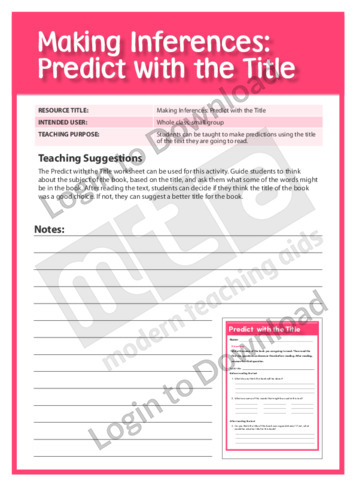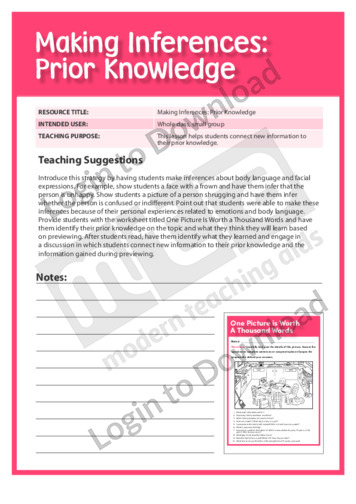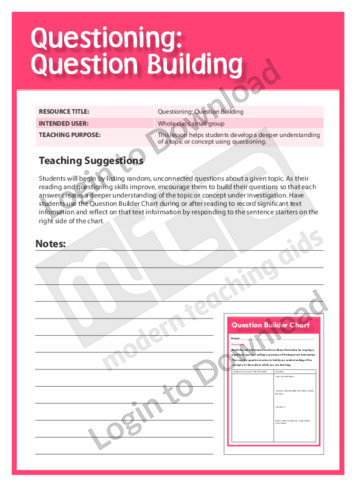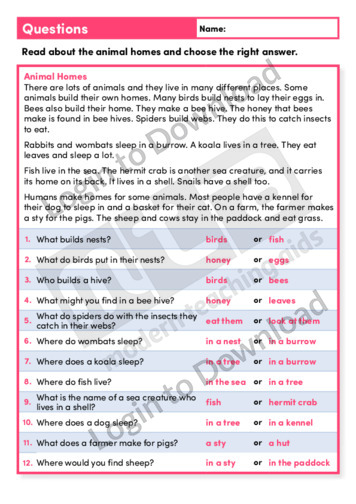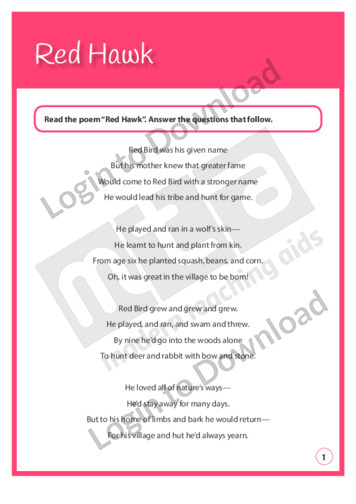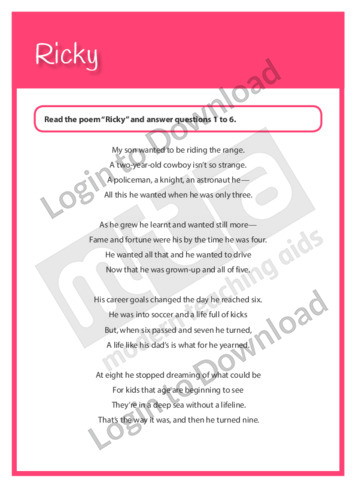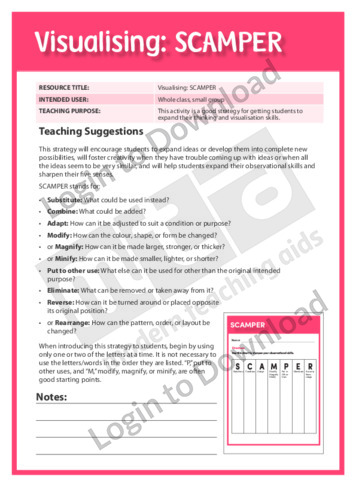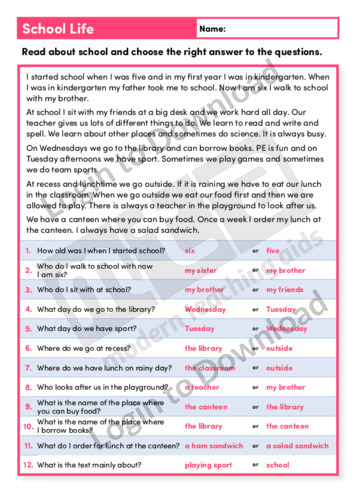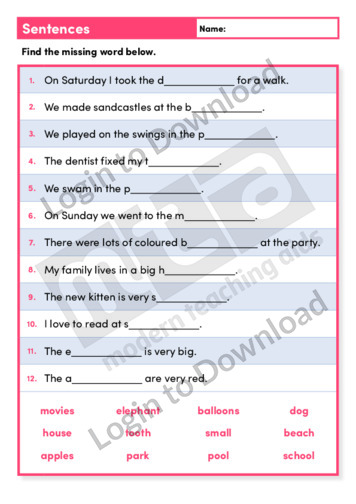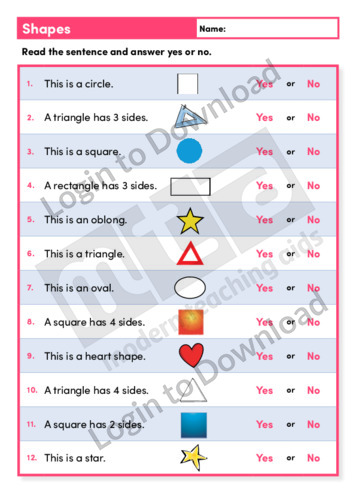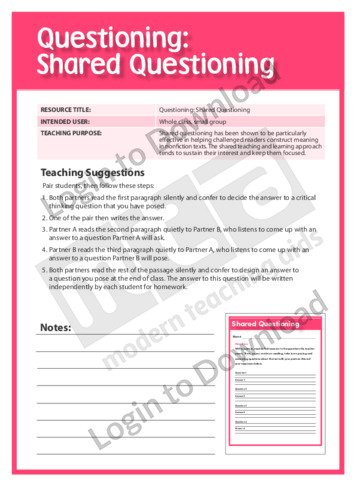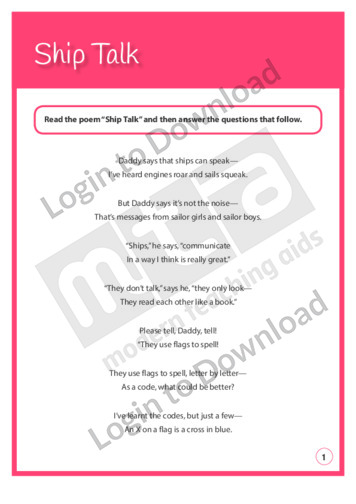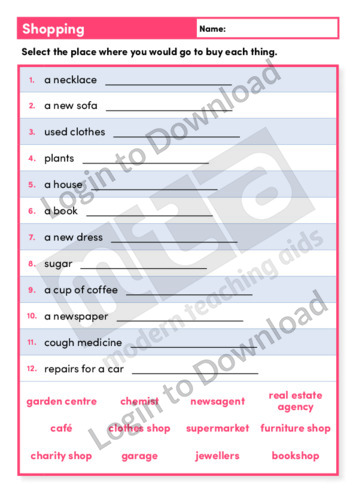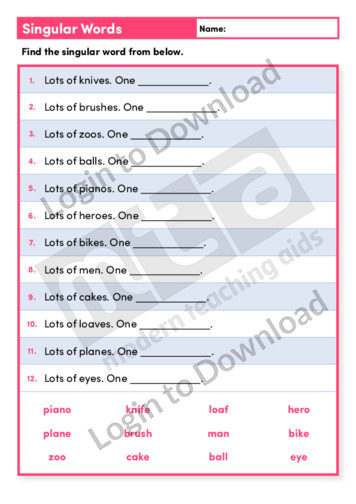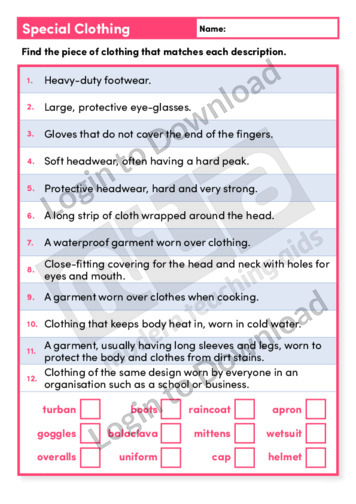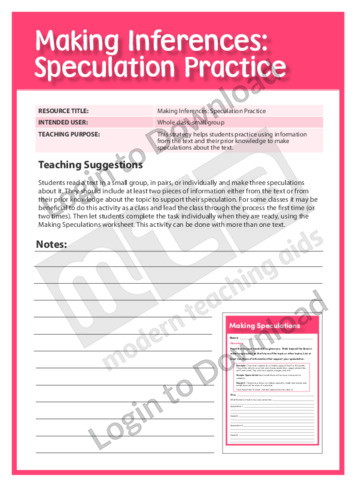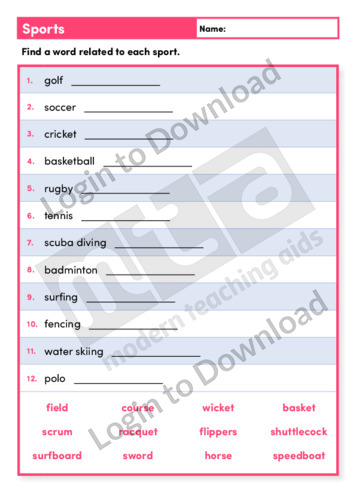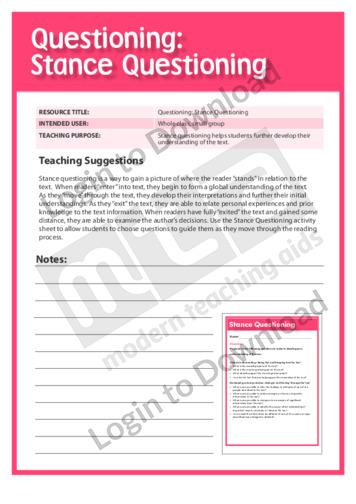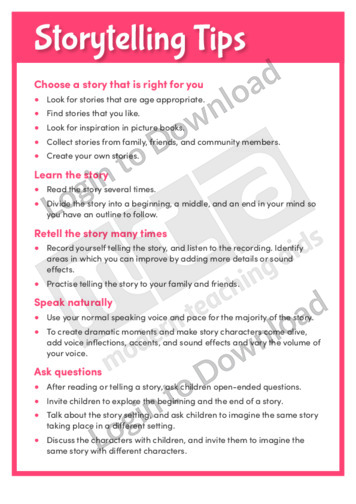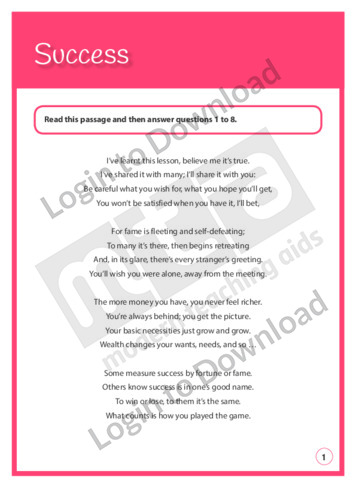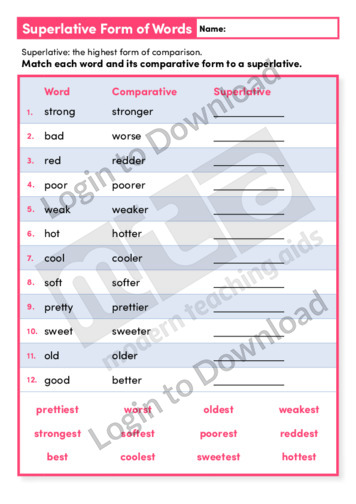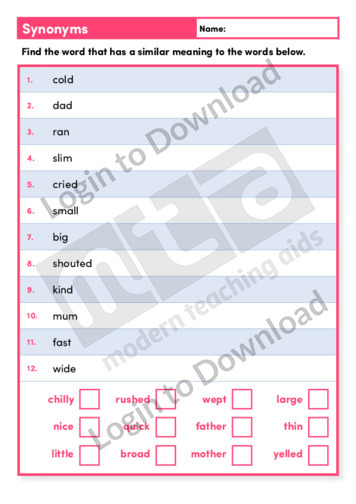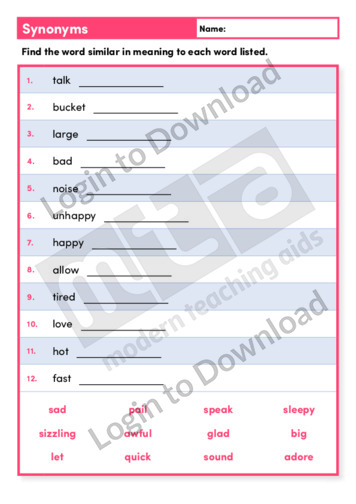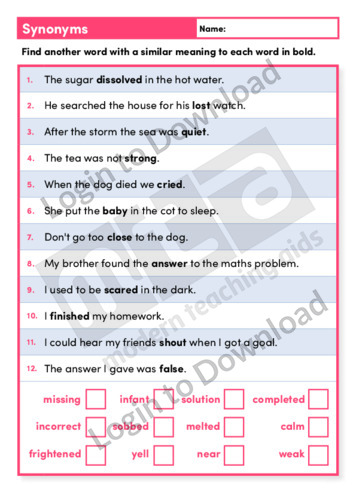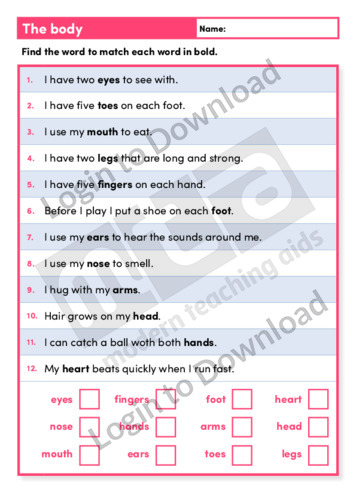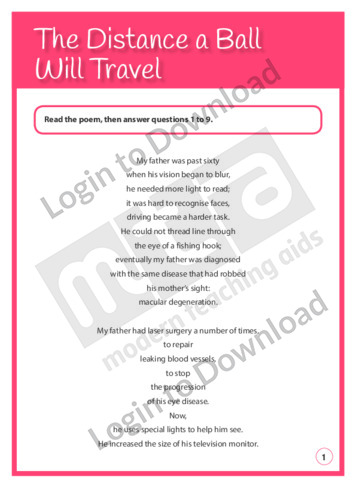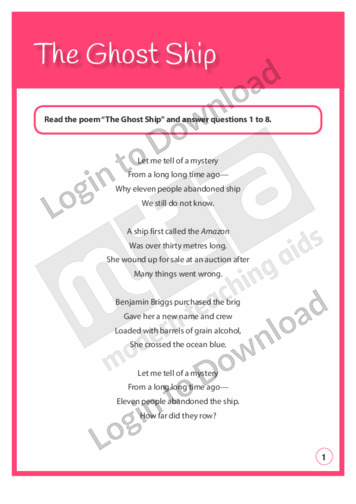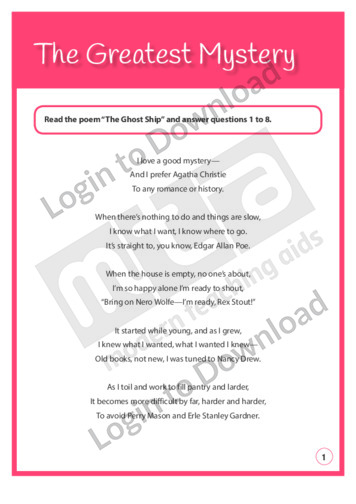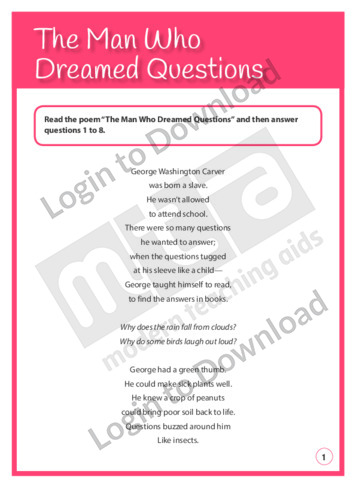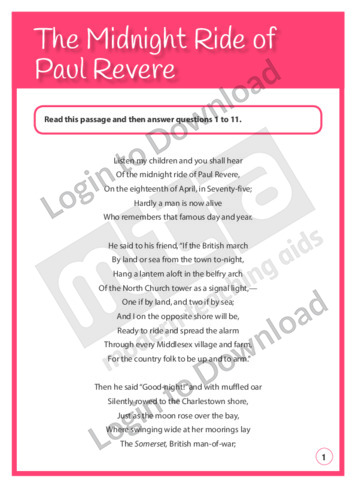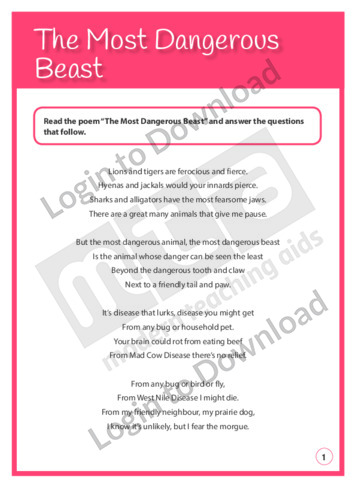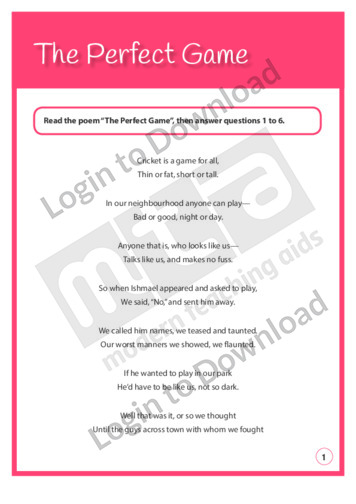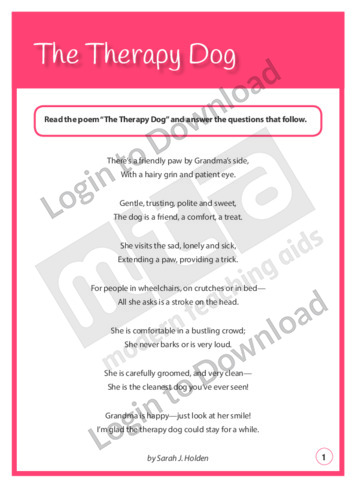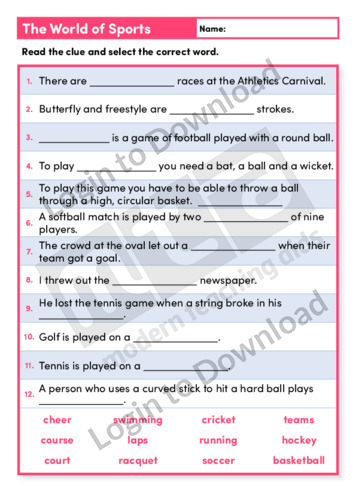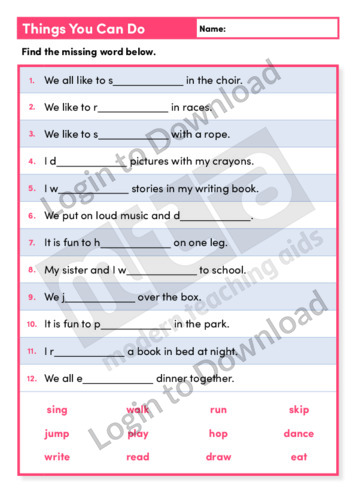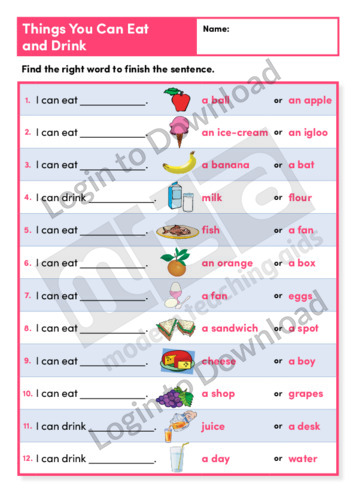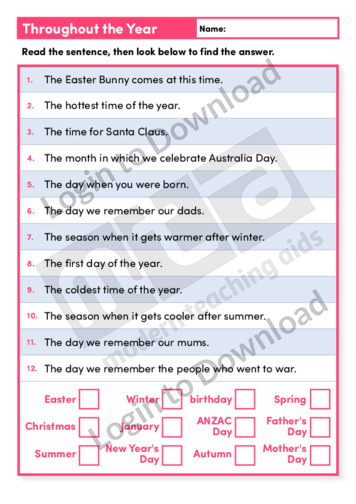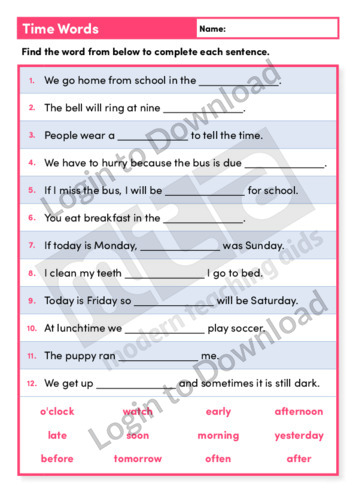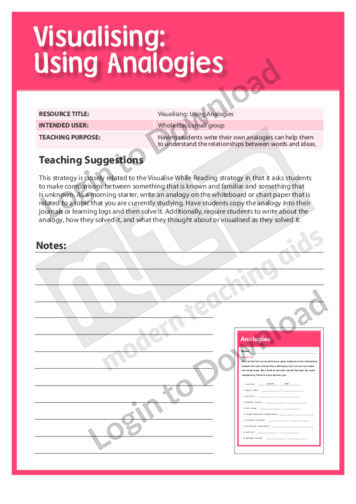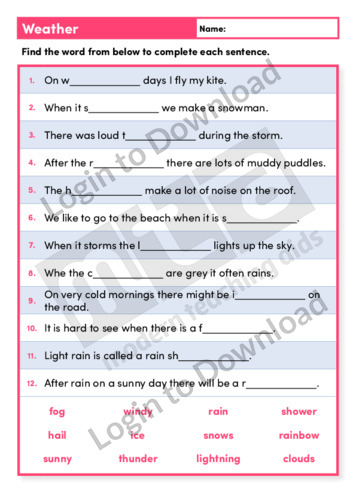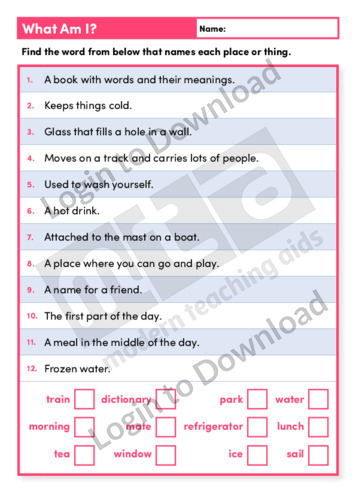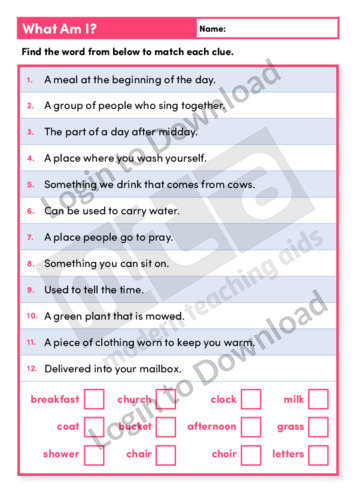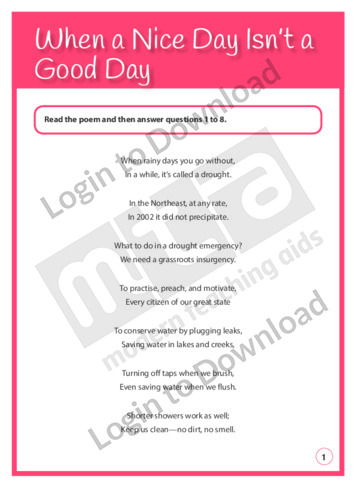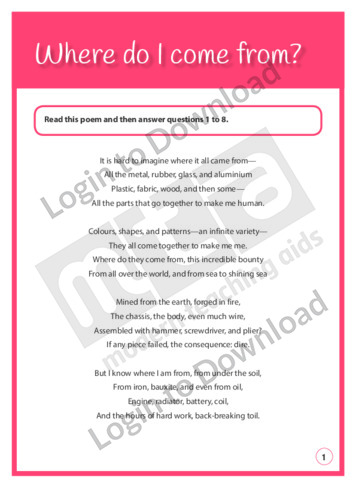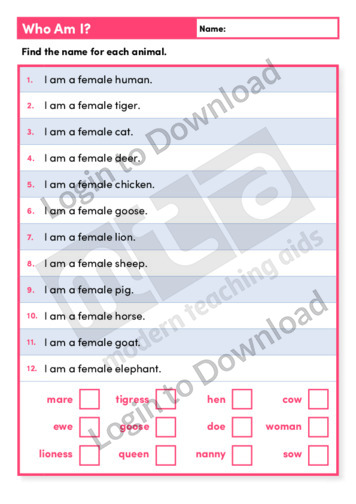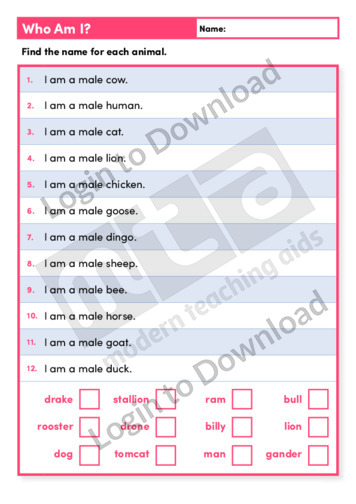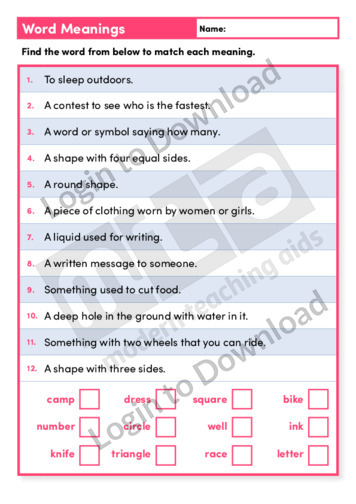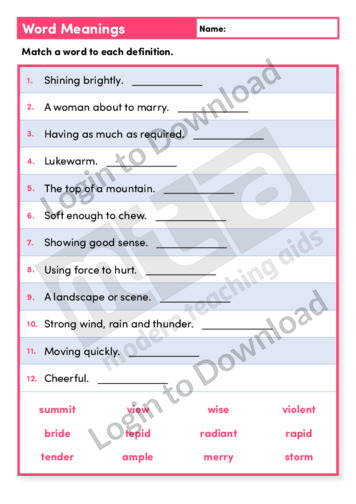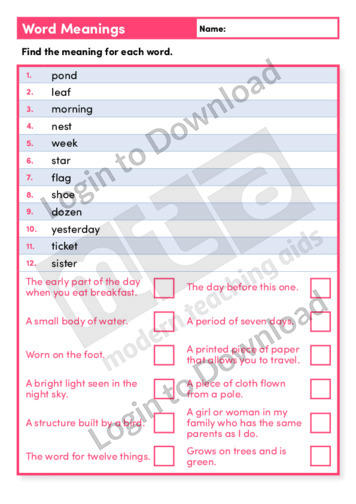This vocabulary activity, ‘Opposites’ supports vocabulary development by encouraging students to match opposite words.
This vocabulary activity, ‘Parts of the Body’ supports vocabulary development by encouraging students to identify functions of parts of the body.
This vocabulary activity, ‘Past Tense’ supports vocabulary development by encouraging students to use verbs in the past tense in a sentence.
This content area reading learning activity, Plot vs. Theme,’ helps students understand the difference between plot and theme. It teaches students that the plot is the series of actions that occur in a book, while themes represent the bigger ideas of the story.
This vocabulary activity, ‘Plural Words’ supports vocabulary development by encouraging students to match the word to its plural form in context.
This vocabulary activity, ‘Plurals’ supports vocabulary development by encouraging students to identify the correct plural nouns.
This vocabulary activity, ‘Plurals’ supports vocabulary development by encouraging students to recognise the plural forms of common nouns.
This vocabulary activity, ‘Plurals’ supports vocabulary development by encouraging students to use plural nouns in the correct context.
This spelling activity, ‘Plurals’ provides opportunities for practice with adding ‘es’ or ‘s’ to create the plural forms of the nouns.
This content area reading learning activity, ‘Predict with the Title,’ teaches students to make predictions using the title of the text they are going to read. It is aimed at enhancing students’ comprehension of a text by making inferences.
This content area reading learning activity, ‘Prior Knowledge,’ helps students connect new information to their prior knowledge. It has students identify their prior knowledge on the topic they will be reading about and what they think they will learn based on previewing.
This content area reading learning activity, ‘Question Building,’ helps students develop a deeper understanding of a topic or concept. It has students record significant text information and reflect on that text information by responding to the sentence starters.
This reading activity, ‘Questions’ provides opportunities for practice with reading about animals and their homes, then answering comprehension questions.
This Poetry worksheet, ‘Red Hawk’, features a poem about a Native American boy growing up into a strong young man. It encourages students to use a variety of strategies to interpret the poem and includes questions about making an inference, making a judgment, vocabulary, reasoning, and author’s purpose. Answer sheet provided with file download.
This Poetry worksheet, ‘Ricky’, features a poem a boy’s career ambitions changing as he grows up. It encourages students to use a variety of strategies to interpret the poem and includes questions about reasoning, detail, figurative language, validity, and character. Answer sheet provided with file download.
This content area reading learning activity, ‘SCAMPER,’ helps students expand their thinking and visualisation skills. It is aimed at fostering creativity when students have trouble coming up with ideas and helping students expand their observational skills and sharpen their five senses.
This reading activity, ‘School Life’ provides opportunities for practice with reading about school life and choosing the correct answers.
This vocabulary activity, ‘Sentences’ supports vocabulary development by encouraging students to identify the correct nouns in context.
This vocabulary activity, ‘Shapes’ supports vocabulary development by encouraging students to identify shapes.
This content area reading learning activity, ‘Shared Questioning,’ helps students construct meaning in nonfiction texts. The shared teaching and learning approach tends to sustain students’ interest and keep them focused.
This Poetry worksheet, ‘Ship Talk’, features a light-hearted poem about semaphore, the flag code used on ships. It encourages students to use a variety of strategies to interpret the poem and includes questions about poem structure, detail, word meaning, figurative language, punctuation, and reasoning. Answer sheet provided with file download.
This vocabulary activity, ‘Shopping’ supports vocabulary development by encouraging students to identify places you would find various types of items or services.
This vocabulary activity, ‘Singular Words’ supports vocabulary development by encouraging students to match plural nouns to their singular form.
This vocabulary activity, ‘Special Clothing’ supports vocabulary development by encouraging students to identify items of clothing from their descriptions.
This content area reading learning activity, ‘Speculation Practice,’ develops students’ skills in inferencing. It is aimed at helping students practice using information from the text and their prior knowledge to make speculations about the text.
This vocabulary activity, ‘Sports’ supports vocabulary development by encouraging students to match associated sports words.
This early learning activity, ‘Storytelling Tips’ provides teachers with guidance on appropriate and effective storytelling techniques.
This Poetry worksheet, ‘Success’, features a poem about fame, money, and the nature of true achievement. It encourages students to use a variety of strategies to interpret the poem and includes questions about making an inference, figurative language, cause and effect, vocabulary, character, and the main idea. Answer sheet provided with file download.
This vocabulary activity, ‘Superlative Form of Words’ supports vocabulary development by encouraging students to identify superlative forms derived from base words.
This vocabulary activity, ‘Synonyms’ supports vocabulary development by encouraging students to match words with others that have the same meaning.
This vocabulary activity, ‘Synonyms’ supports vocabulary development by encouraging students to match words with others that have the same meaning.
This vocabulary activity, ‘Synonyms’ supports vocabulary development by encouraging students to match words with others that have the same meaning.
This vocabulary activity, ‘The Body’ supports vocabulary development by encouraging students to identify the correct body words in context.
This Poetry worksheet, ‘The Distance a Ball Will Travel’, features a poem about a father losing his sight. It encourages students to use a variety of strategies to interpret the poem and includes questions about detail, words in context, cause and effect, figurative language, comparison/contrast, reasoning, drawing a conclusion, character, and theme. Answer sheet provided …More
This Poetry worksheet, ‘The Ghost Ship’, features a poem about the Mary Celeste, a ship that was mysteriously abandoned by its passengers and crew in 1872. It encourages students to use a variety of strategies to interpret the poem and includes questions about the main idea, reasoning, vocabulary, figurative language, detail, drawing a conclusion, and …More
This Poetry worksheet, ‘The Greatest Mystery’, features a poem about mystery writers such as Agatha Christie, Edgar Allan Poe, Jonathon and Faye Kellerman, and Tony Hillerman. It encourages students to use a variety of strategies to interpret the poem and includes questions about detail, making a judgment, drawing a conclusion, comparison/contrast, and slant/bias. Answer sheet …More
This Poetry worksheet, ‘The Man Who Dreamed Questions’, features a poem about the American scientist and botanist George Washington Carver. It encourages students to use a variety of strategies to interpret the poem and includes questions about cause and effect, figurative language, making a judgment, characteristics of poetry, word meaning, comparison/contrast, and reasoning. Answer sheet …More
This Poetry worksheet, ‘The Midnight Ride of Paul Revere’, features Henry Wadsworth Longfellow’s famous poem about the start of the American Revolution. It encourages students to use a variety of strategies to interpret the text and includes questions about comparison/contrast, vocabulary, sequence, detail, figurative language, vocabulary, author’s purpose, categorising, and literary devices. Answer sheet provided …More
This Poetry worksheet, ‘The Most Dangerous Beast’, features a light-hearted poem about diseases spread by animals, such as Mad Cow Disease, West Nile Disease, Monkeypox, and Lyme Disease. It encourages students to use a variety of strategies to interpret the poem and includes questions about interpretive language, author’s purpose, drawing a conclusion, and making a …More
This Poetry worksheet, ‘The Perfect Game’, features a poem about a boy who encounters prejudice when he tries to play with the children of his new neighbourhood. It encourages students to use a variety of strategies to interpret the poem and includes questions about drawing a conclusion, vocabulary, reasoning, detail, making a judgment, and theme. …More
This Poetry worksheet, ‘The Therapy Dog’, features a poem about a gentle dog that visits the elderly and the sick. It encourages students to use a variety of strategies to interpret the poem and includes questions about vocabulary, figurative language, validity, making a judgment, reasoning, and character. Answer sheet provided with file download.
This vocabulary activity, ‘The World of Sports’ supports vocabulary development by encouraging students to complete sentences using sports and games vocabulary.
This vocabulary activity, ‘Things You Can Do’ supports vocabulary development by encouraging students to identify the correct verbs in context.
This vocabulary activity, ‘Things You Can Eat and Drink’ supports vocabulary development by encouraging students to identify the appropriate noun to complete each sentence.
This vocabulary activity, ‘Throughout the Year’ supports vocabulary development by encouraging students to match descriptions to the appropriate celebration or time of year.
This vocabulary activity, ‘Time Words’ supports vocabulary development by encouraging students to use vocabulary related to time.
This content area reading learning activity, ‘Using Analogies,’ helps students understand the relationships between words and ideas. It encourages students to make comparisons between something that is known and familiar and something that is unknown.
This vocabulary activity, ‘Weather’ supports vocabulary development by encouraging students to complete sentences using weather vocabulary.
This vocabulary activity, ‘What Am I?’ supports vocabulary development by encouraging students to match nouns to their descriptions.
This vocabulary activity, ‘What Am I?’ supports vocabulary development by encouraging students to match descriptive clues to the correct nouns.
This Poetry worksheet, ‘When a Nice Day Isn’t a Good Day’, features a poem about drought and water conservation. It encourages students to use a variety of strategies to interpret the poem and includes questions about detail, vocabulary, making an inference, author’s purpose, reasoning, and making a judgment. Answer sheet provided with file download.
This Poetry worksheet, ‘Where do I come from?’, features a poem written from the perspective of a racing car. It encourages students to use a variety of strategies to interpret the poem and includes questions about drawing a conclusion, author’s purpose, validity, reasoning, vocabulary, mood/tone, genre, and the main idea. Answer sheet provided with file …More
This vocabulary activity, ‘Who Am I?’ supports vocabulary development by encouraging students to identify female animal names.
This vocabulary activity, ‘Who Am I?’ supports vocabulary development by encouraging students to identify male animal names.
This vocabulary activity, ‘Word Meanings’ supports vocabulary development by encouraging students to matching words to their definitions.
This vocabulary activity, ‘Word Meanings’ supports vocabulary development by encouraging students to identify nouns and adjectives from descriptions.
This vocabulary activity, ‘Word Meanings’ supports vocabulary development by encouraging students to find the meanings of nouns.
It�s that easy!

